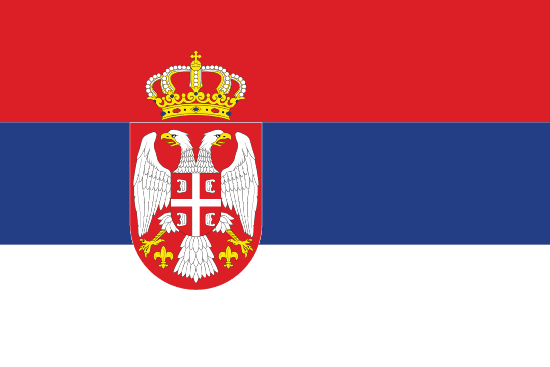"Novi Pazar - Grad za sve | Novi Pazar - A city for everyone"
About:
Novi Pazar, founded in the 15th century, is a city in Serbia. Its history is marked by Ottoman rule, which lasted until the late 19th century, contributing to its rich cultural diversity. It became part of the Kingdom of Serbia in 1912, then Yugoslavia post-WW1. During the 1990s Yugoslav Wars, it remained peaceful despite regional tensions. Today, Novi Pazar is a center for the Bosniak community in Serbia and is known for its historical sites, including the UNESCO-listed Stari Ras and Sopoćani.
When to visit:
Novi Pazar, a picturesque town located in Serbia, enjoys a moderate continental climate with four distinct seasons. The best time to visit Novi Pazar is during the late spring and early summer months of May and June when the weather is pleasantly warm and the landscape is lush and vibrant. This period is ideal for exploring the town's historical sites, such as the 16th-century fortress and numerous Ottoman-era mosques. Additionally, attending local festivals and events during this time can provide visitors with a rich cultural experience unique to Novi Pazar.
When to avoid:
Novi Pazar, located in Serbia, experiences its peak tourist season during the summer months, from June to August, when the weather is warm and dry. However, the worst time to travel to Novi Pazar on a holiday would be during the winter months, particularly in December and January. During this time, Novi Pazar can experience heavy snowfall and freezing temperatures, making travel difficult and limiting outdoor activities. It is best to avoid traveling to Novi Pazar during the winter season if you prefer milder weather and more accessible travel conditions.
Winter (Dec-Feb)
In Novi Pazar, Serbia, the coldest months are January and February with average temperatures dropping to -1°C. The city experiences frequent snowfall during this period, with cloud cover being heavy and days being short with only a few hours of sunlight. Rainfall is minimal, usually less than 40mm per month. An average day for a visitor during these months would involve chilly temperatures and potentially snowy conditions, so warm clothing is a must. Indoor activities or exploring the snowy landscapes are popular during this time.
Summer (June-August)
Novi Pazar, Serbia experiences its warmest part of the year from June to August, with July being the hottest month. During this period, the average high temperature ranges from 25°C to 30°C (77°F to 86°F). Rainfall is relatively low, with July being the driest month averaging about 60mm of rainfall. The region enjoys long daylight hours, with an average of 14 to 15 hours of sunlight per day.
Humidity levels are moderate during this time, typically around 60-70%, making the heat bearable. Cloudiness is also relatively low, with clear or partly cloudy skies prevalent, providing plenty of sunshine.
A typical day for a visitor during this period would start with a warm morning, heating up to hot in the afternoon. Evenings are pleasantly warm, perfect for outdoor activities or dining. Despite the heat, the moderate humidity ensures comfort. The low rainfall and cloudiness mean that most days are sunny, making it an ideal time for sightseeing and exploring the city.
Language:
In Novi Pazar, Serbia, the most widely spoken languages are Bosnian and Serbian. Bosnian is primarily spoken by the Bosniak community, which forms the majority in the city. Serbian, the official language of Serbia, is also commonly used. Other languages, such as Turkish and Romani, are spoken by minority communities.




